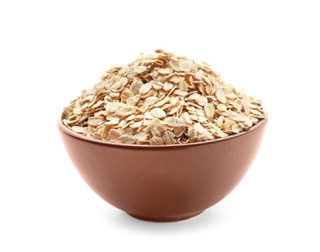

Oatmeal, also known as rolled oats, is a safe and nutritious food for dogs if consumed in moderation. It is rich in fiber, omega-3 fatty acids, and B-vitamins, promoting healthy digestion, skin, and coat. Additionally, it regulates energy and blood sugar levels, making it a great food for diabetic dogs. However, it should only be served occasionally and in small servings as it is high in carbohydrates and calories, resulting in unhealthy weight gain if consumed excessively.
Oatmeal is high in fiber, reducing the risk of heart disease and promoting digestion. It also contains B-vitamins, omega-6 fatty acids, and linoleic acids, which promote healthy skin and coat. Oatmeal regulates energy and blood sugar levels by slowing down sugar absorption. It is gluten-free, making it safe for dogs with gluten intolerance.
Raw oats are difficult for dogs to digest and may cause digestive issues, especially when consumed in large quantities. Uncooked oats can also cause choking. Oatmeal and oats may be contaminated with gluten and trigger allergic reactions in dogs with wheat allergy. Porridge made with oatmeal and milk may cause adverse reactions in lactose-intolerant dogs.
Wash and cook oatmeal to aid digestion and serve plain without sugar or milk. Oatmeal should be served in moderation and occasionally, with one tablespoon of cooked rolled oats per 9 kilos of the dog’s weight as the recommended amount. Oatmeal should not make up the majority of a dog’s diet, which should consist mainly of quality meat-based protein.
Dogs can safely eat oatmeal in moderation. Rolled oats are rich in fiber and omega-3 fatty acids, which support healthy skin, coat, and digestion. However, excessive consumption can lead to unhealthy weight gain due to high carbohydrate and calorie content.
It is affordable and easy to access from most grocery stores. Just make sure to cook oatmeal before serving it to your dog to avoid digestive problems, and never add sugar or milk as it can cause adverse reactions in lactose-intolerant dogs. A recommended serving idea is to mix one tablespoon of cooked rolled oats per 9 kilos of the dog's weight with their regular food.
If your dog does not like oatmeal or has a gluten or wheat allergy, some alternatives to consider are quinoa and brown rice, both of which are low in fat and high in fiber and protein.
Have you ever given oatmeal to your furry friend before? How did they like it? Did you notice any positive effects on their health? Let's discuss in the comments!
Remember to always consult with your veterinarian before making any significant changes to your dog's diet. As always, keep your pup healthy and happy!